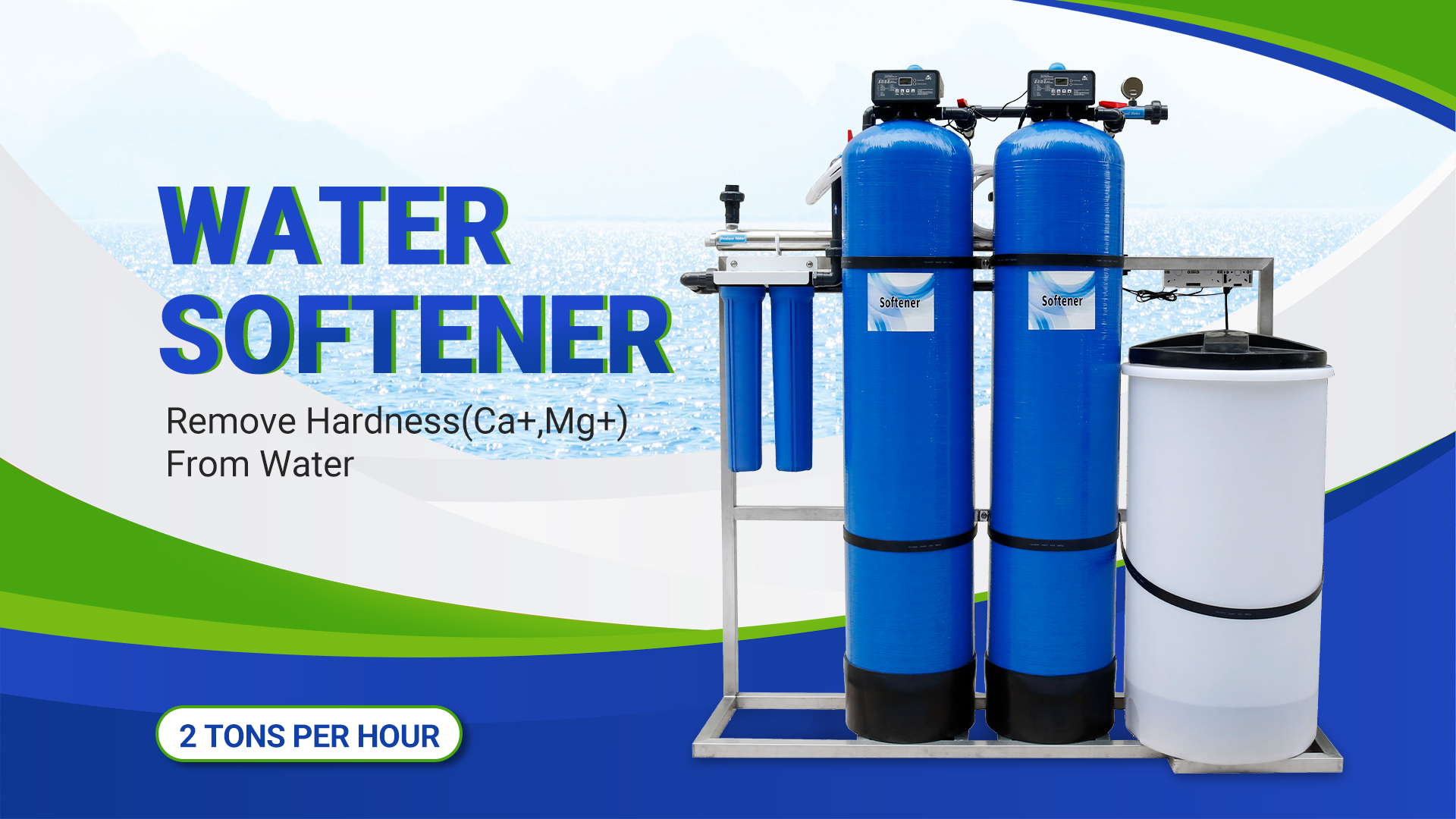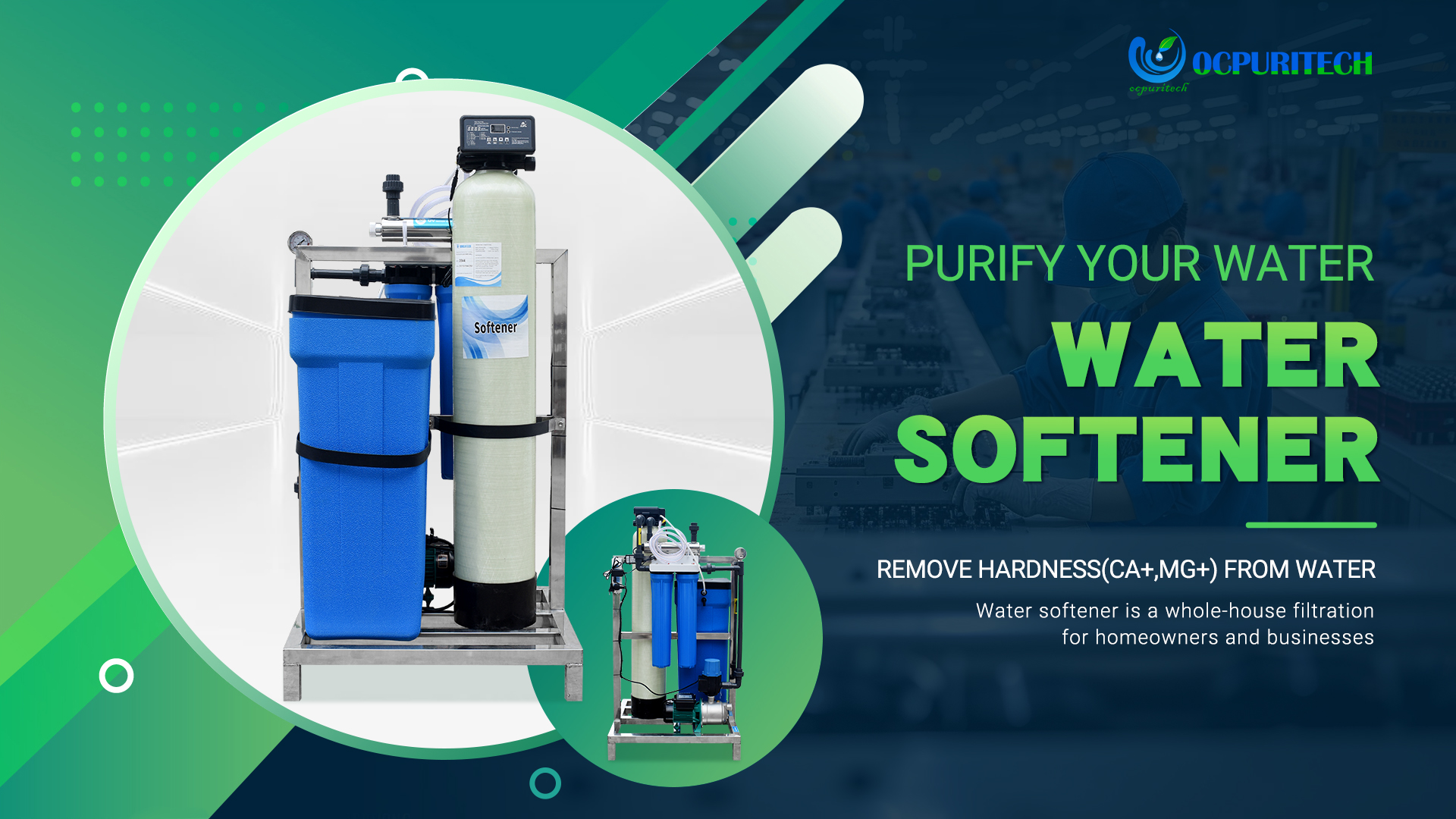At Ocpuritech, we understand that as a car wash owner, you’re always looking for ways to improve the quality of your service. One of the most common inquiries we receive is about upgrading water treatment systems for car washes. With water quality playing a crucial role in vehicle maintenance, it’s essential to choose the right water source. Today, we’ll dive deep into the advantages and disadvantages of soft water versus purified water for car washes, helping you make an informed decision for your business.

Understanding the Difference Between Soft Water and Purified Water
Before we explore which type of water is better suited for car washes, let’s clarify what soft water and purified water are and how they differ.
- Soft Water: Soft water is water that has been treated to remove minerals like calcium and magnesium, which cause water hardness. This is typically done through ion exchange or membrane processes. The result is water that is less likely to form scale or leave water spots on surfaces.
- Purified Water: Purified water undergoes multiple filtration stages, including reverse osmosis, to remove impurities, bacteria, viruses, and dissolved solids. The end product is highly pure water with almost no contaminants, providing the cleanest possible wash for your vehicle.
The Advantages of Using Soft Water in Car Washes
Soft water is often chosen for car washes due to its specific benefits:
- Reduced Water Spots and Scale Formation:
- Soft water’s low mineral content means it doesn’t leave behind white spots on car surfaces after drying. This makes it ideal for maintaining a vehicle’s appearance without additional polishing.
- Protection Against Corrosion:
- Because soft water lacks the harsh minerals found in hard water, it’s less corrosive to car wash equipment. This can significantly extend the lifespan of your machinery, saving on maintenance and replacement costs.
- Enhanced Effectiveness of Cleaning Agents:
- Soft water enhances the effectiveness of soaps and detergents, allowing them to lather more easily and clean more thoroughly. This not only improves cleaning efficiency but also reduces the amount of cleaning product needed, leading to cost savings.
- Improved Vehicle Appearance:
- The absence of minerals like calcium and magnesium in soft water can result in a shinier finish on the vehicle’s exterior. By preventing the buildup of scale and residue, soft water keeps vehicles looking clean and well-maintained.
The Advantages of Using Purified Water in Car Washes
Purified water is often considered the gold standard in car washing due to its superior quality:
- Superior Cleaning Capability:
- With a filtration precision of 0.0001 microns, purified water is free from nearly all contaminants, including dirt, bacteria, and dissolved solids. This results in an exceptionally clean wash that removes even the finest particles from a car’s surface.
- No Residue Left Behind:
- Purified water eliminates the risk of residue or water spots, ensuring that vehicles come out spotless after washing. This is especially important for high-end cars where maintaining the perfect finish is crucial.
- Safe for All Vehicle Surfaces:
- Since purified water is free of harsh chemicals and minerals, it’s gentle on all types of vehicle surfaces, including delicate paint finishes and chrome accents. This makes it suitable for washing luxury and performance vehicles.
- Healthier for Equipment and the Environment:
- The absence of corrosive elements in purified water means it’s also less likely to damage your car wash equipment. Additionally, since it doesn’t contain harmful chemicals, it’s an environmentally friendly option that can help reduce your operation’s ecological footprint.
Cost Considerations and Practicality
While both soft water and purified water offer significant advantages, there are also cost considerations to keep in mind:
- Soft Water:
- Installing a water softener is generally more affordable and has lower ongoing costs compared to a purified water system. For car wash businesses with a tight budget, soft water provides a good balance of quality and cost-effectiveness.
- Purified Water:
- Purified water systems, particularly those using reverse osmosis, tend to be more expensive to install and operate. However, the high level of cleanliness and protection they offer can justify the investment, especially for premium car wash services.

Conclusion: Which Water Type is Best for Your Car Wash?
The decision between using soft water or purified water for your car wash ultimately depends on your specific needs and budget.
- Soft Water is ideal for general car washes looking to prevent water spots and equipment corrosion without a significant financial outlay.
- Purified Water is better suited for high-end or specialty car washes where the highest level of cleanliness is required, and customers expect a flawless finish.
At Ocpuritech, we specialize in providing advanced water treatment solutions tailored to the car wash industry. Whether you’re interested in installing a soft water system or exploring the benefits of purified water, our team is here to help you make the best choice for your business. Contact us today to learn more about how we can enhance your car wash operations with our cutting-edge water treatment technology.
